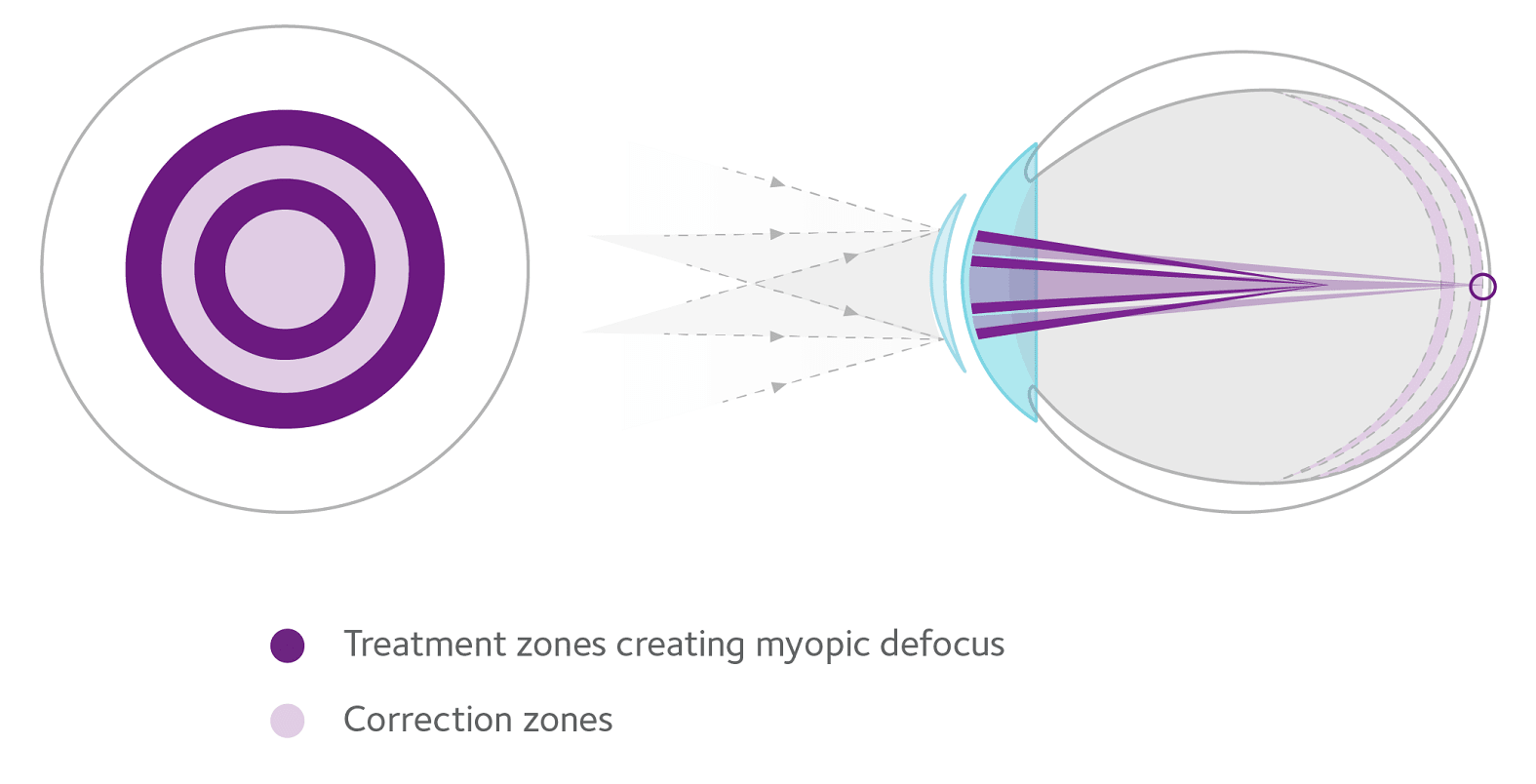 |
Choroidal thickness may be a predictor of the efficacy of MiSight lenses for treating myopia. Photo: Coopervision. Click image to enlarge. |
Myopia involves many anatomic changes to the eye, one of which is choroidal thinning, which has been associated with axial eye growth. Choroidal thickening, on the other hand, may indicate a slowing of myopia progression. Researchers recently examined the influence of MiSight (Coopervision) contact lens wear on choroidal changes and found that some patients demonstrated choroidal thickening with these myopia-controlling lenses.
A total of 41 myopic children were fitted with MiSight contact lenses and 33 children received single-vision spectacles. The researchers measured subfoveal choroidal thickness and choroidal thickness 1mm and 3mm temporal and nasal to the fovea on OCT and followed the children for two years. Patients wearing MiSight were grouped as responders if they exhibited an axial length change <0.22mm/per year or were non-responders.
The researchers reported that there weren’t any differences in choroidal thickness changes between patients wearing MiSight or spectacles after two years.
MiSight responders and non-responders demonstrated differences in choroidal thickness, with responders showing relative choroidal thickening in the first year. “This could mean that choroidal thickness is a predictor of the effectiveness of MiSight in myopia treatment,” the researchers wrote in their paper.
Prieto-Garrido FL, Villa-Collar C, Hernandez-Verdejo JL, et al. Changes in the choroidal thickness of children wearing MiSight to control myopia. J Clin Med. 2022;11:3833. |

